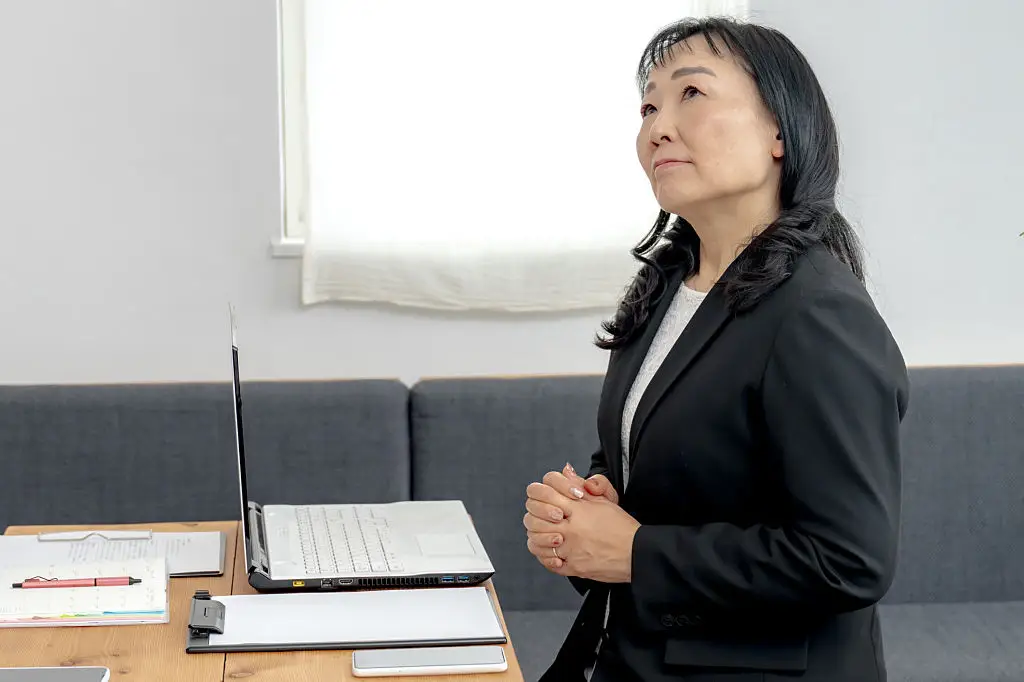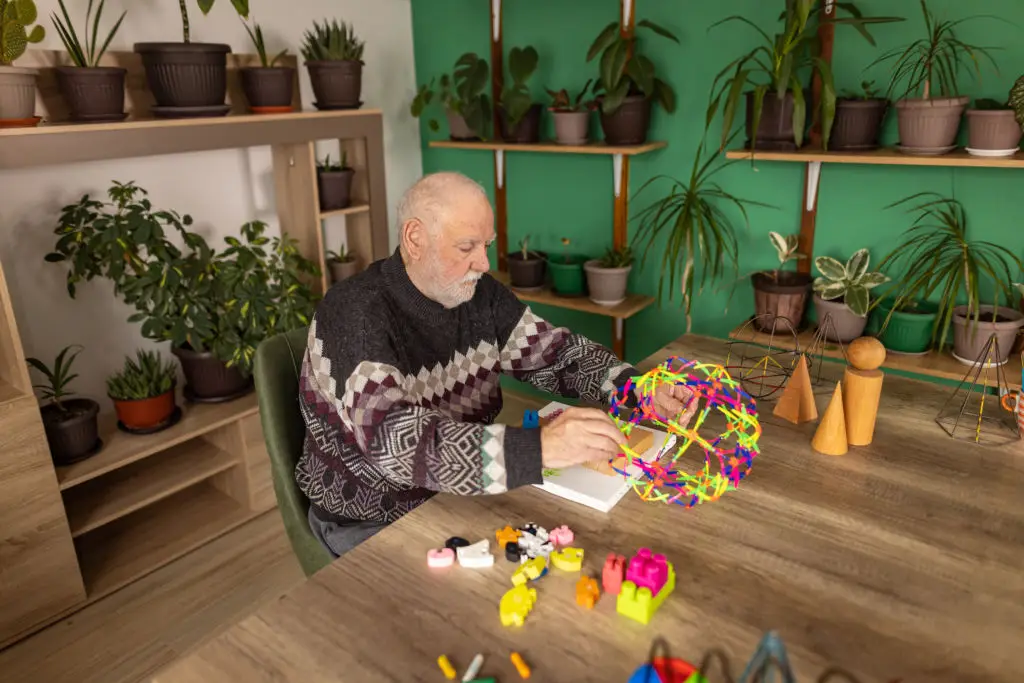The Brain's SOS: 10 Early Warning Signs of Dementia You Can't Afford to Ignore
Our brains are remarkable storytellers—preserving memories, guiding us through busy days, and connecting us with the people we love. Yet, just as our stride may slow or our vision grows less sharp over the years, sometimes the mind sends subtle signals that deserve gentle attention. Dementia isn’t a single disease, but a collection of symptoms that affect thinking, memory, and daily life in surprising ways. Early recognition of these changes doesn’t mean facing them alone—it means opening the door to better planning, support, and hope. When caught early, dementia’s warning signs can be met with new treatments, compassionate care, and the compassion you already bring to every relationship. For those who have ever wondered, “Is this normal aging, or is something deeper going on?”—you are certainly not alone. Together, let’s explore ten early clues that may signal dementia, using the compassionate wisdom of experts from the Alzheimer’s Association, Mayo Clinic, and CDC. Trust that noticing these shifts is the first step toward protecting your well-being and honoring your journey with understanding and grace.
1. Memory Loss That Disrupts Daily Life

Occasionally forgetting where you parked is one thing. But when memory slips begin disrupting daily routines—like forgetting recently learned information, important dates, or relying more on notes and family reminders—it’s worth paying attention. According to the Alzheimer’s Association, persistent memory changes are often the first red flag of Alzheimer’s disease and other dementias. This isn’t about simply misplacing your keys now and then. It’s when the keys are found in truly unlikely places, or when repeated questions surface throughout the same day. While everyone has those scatterbrained moments, dementia-related memory loss tends to make it difficult to recall information that was just learned. If you—or someone you care about—begins to notice repeated forgetfulness impacting work, social life, or favorite routines, it may be time to have an honest conversation with a healthcare provider. These early signs are about supporting health, not about blame. The small step of sharing concerns can lead to early care, helpful resources, and practical next steps. Every memory matters, and nurturing brain health starts with gentle observation.
2. Difficulty Planning or Solving Problems

Paying bills late or struggling to follow familiar recipes can sometimes happen when we’re busy or distracted. But if organizing plans, working with numbers, or following step-by-step instructions becomes increasingly confusing, it could be more than just an “off” day. Experts at the Alzheimer’s Association highlight that trouble with concentration and planning—such as missing monthly payments, trouble balancing a checkbook, or finding it hard to stick to a grocery list—are among the earliest warning signs of cognitive change. Unlike normal forgetfulness that fades quickly, these challenges arise repeatedly and may catch even the most organized person by surprise. It’s important to remember there’s no shame in needing extra help or asking for another set of eyes on important details. Early recognition can make a difference, connecting you with resources and new routines that restore confidence. If you see this shift, a gentle check-in with a care provider can point you toward the right support, making daily tasks less overwhelming and more manageable.
3. Trouble Completing Familiar Tasks

We all need a few moments to learn new technology, but struggling to do things you've always done—like driving to a regular location, managing your television remote, or following your favorite game’s rules—might signal more than a busy mind. Trouble completing familiar tasks, especially when it impacts things you once did with ease, is one of the key early indicators of dementia. Unlike simple frustration with a new app, this involves confusion during regular, comfortable routines. According to the CDC, getting lost on the way to a local grocery store or finding yourself unable to finish a beloved recipe are signs to take seriously. If this happens, give yourself credit for noticing; it’s never about perfection, but about understanding new needs as they arise. Consider keeping a daily log of difficult tasks and share these notes with a trusted friend or healthcare provider. Uncovering patterns early can help uncover helpful strategies, making day-to-day life feel less overwhelming and more supported.
4. Confusion With Time or Place

It’s easy to lose track of the date during a long weekend, but dementia-related changes go a step further, leading to confusion about seasons, the passage of time, or where you are. People may find themselves unsure how they arrived somewhere, or become lost in unfamiliar or even once-familiar places. The Mayo Clinic shares that this kind of disorientation isn’t about a simple “What day is it?” slip—it’s more persistent and recurring, sometimes creating worry and a feeling of being unmoored. Using large-print calendars, clocks, or routine-setting tools can help maintain a sense of grounding. If you notice these patterns in yourself or someone else, try gently building daily time cues and check-ins. Remember that needing reminders doesn’t diminish your abilities—it’s just another way to care for yourself and maintain independence for longer.
5. Difficulty Understanding Visual Images and Spatial Relationships

Struggling to read the menu at a favorite restaurant or having more frequent stumbles over steps might not just be “getting older.” Dementia often shows up as difficulty with depth perception, judging distances, or recognizing contrast—changes different from simple eyesight challenges that glasses fix. The CDC highlights that trouble reading, increased bumping into objects, or difficulty with color and spatial relationships during tasks like driving are early signs to recognize. Regular eye exams are important, but if these issues persist after addressing ordinary vision problems, take note. Support can come from environmental changes, like adding contrast to stairways and labeling frequently-used items. Adapting your environment is a sign of wisdom, not weakness, and helps everyone enjoy daily activities with greater ease and safety.
6. New Problems With Words in Speaking or Writing

Having a word “on the tip of your tongue” happens to everyone, but dementia can make finding the right words—or following and joining conversations—a much more common struggle. People may repeat themselves several times in the same discussion, lose their train of thought, or have trouble naming familiar objects. The Alzheimer’s Association points out that this symptom isn’t about nerves or occasional embarrassment; it’s frequent and can interfere with social gatherings or personal expression. If you notice more pauses, substitutions (“that thing” instead of “remote control”), or challenges with written notes and emails, take it as a gentle nudge to ask for support. Practicing patience, slowing down conversation pace, and using reminders can make communication smoother for everyone. Social connection still matters, even when words play hard to get—a supportive atmosphere goes a long way.
7. Misplacing Things and Losing Ability to Retrace Steps

Everyone loses the remote now and then, but a key warning sign of dementia is putting things in unusual places—like the TV remote in the fridge, or shoes in the bathroom cabinet—and being unable to retrace steps to find them. What sets dementia-related forgetfulness apart is the loss of problem-solving ability and the likelihood these episodes increase over time. According to the Alzheimer’s Association, loved ones may start to notice missing objects, and suspicion about theft may arise if memories can’t be pieced back together. If you experience these moments, viewing them as signals for gentle self-care, not self-blame, is important. Developing a habit of keeping important items in designated areas and making lists can reduce frustration. Reaching out to others for help is a sign of strength, not weakness, and early attention opens doors to practical solutions.
8. Decreased or Poor Judgment

Even the most careful person occasionally makes a questionable purchase or forgets to dress for the weather. Dementia, though, can cause more frequent lapses in judgment—such as giving away large sums of money, falling for scams, or forgetting about hygiene and grooming. The Mayo Clinic explains that declining decision-making often shows up in money matters or when important personal choices suddenly seem less important than before. This goes beyond a “bad day” and may happen repeatedly or with more severe consequences. Having supportive family or financial safeguards in place is not just practical, but empowering. If you start seeing these shifts in yourself or a loved one, talk about financial safety and daily routines with care and honesty. Protecting independence is about planning ahead, not taking away choices.
9. Withdrawal From Work or Social Activities

It’s perfectly normal to skip a gathering when tired. If social withdrawal or loss of interest in work or favorite hobbies happens more often, however, it might be a sign of early dementia. As cognitive changes make following conversations harder or once-simple activities more confusing, some people understandably pull back—not out of lack of interest, but because of increasing frustration or embarrassment. The Alzheimer’s Association encourages families to watch for these subtle changes, like less participation in peer groups, skipping regular outings, or dropping cherished pastimes. Offering encouragement, inviting involvement without pressure, and exploring new, comfortable activities together build confidence and community. No one needs to navigate this alone, and support from loved ones paves the way for meaningful engagement at every stage of life.
10. Changes in Mood or Personality

It’s natural to have off days or to feel more introspective with age. But dementia can cause personality and mood shifts—sometimes leading to confusion, suspicion, depression, fear, or anxiety without clear triggers. The Alzheimer’s Association finds that people with dementia may become easily upset, especially in unfamiliar environments. These changes set dementia apart from typical emotional ups and downs and may emerge as irritability, social discomfort, or uncharacteristic reactions to daily stressors. Families can gently validate these feelings and help loved ones build routines and safe, familiar spaces. If you observe persistent mood changes in yourself or someone close, reaching out to a medical professional or counselor is a wise, compassionate move. A little understanding goes a long way toward easing the emotional side of brain health challenges.
Moving Forward With Understanding

Awareness is the first gift you can give to yourself or a loved one facing the uncertainty of cognitive change. Recognizing early warning signs—whether in memory, day-to-day habits, or mood—opens a pathway not only to care, but also to connection and dignity. Realizing that dementia, in all its forms, is not a personal failing but a medical journey helps shift the focus from worry to empowerment. Early attention gives families and individuals more control, more options, and more opportunities to create joyful routines and lasting memories together. If you’ve seen any of these shifts, don’t carry the weight alone: professional guidance can clarify the difference between normal aging and concerning changes. Sharing your concerns with a trusted doctor, engaging in open conversations, and seeking out supportive resources honors both your courage and the spirit of those you care about. Remember, the journey with brain health is about walking side by side, celebrating small victories, and offering gentle kindness every step of the way. Your story is still being written—with understanding, hope, and support.
